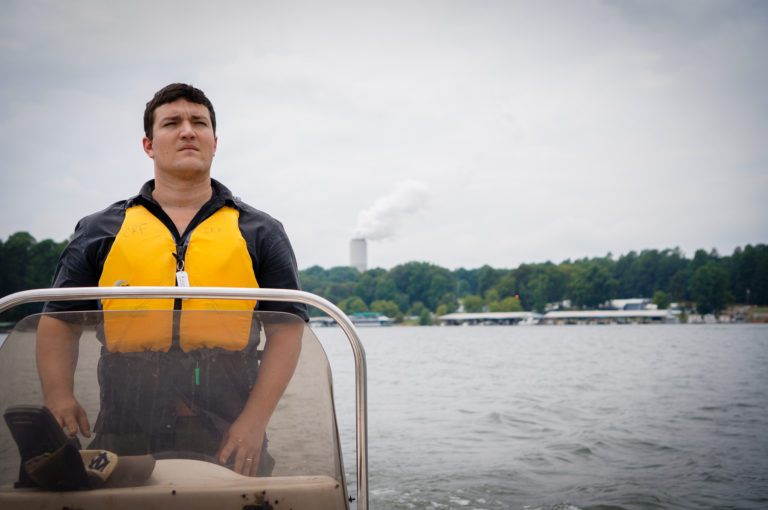NC DEQ Allows a Delay of Toxic Pollution Limits in Permit for Duke Energy’s Marshall Coal Ash Site in Lake Norman
By: Waterkeeper Alliance

In response to legal action by the Southern Environmental Law Center on behalf of Catawba Riverkeeper Foundation, Sierra Club, and Waterkeeper Alliance, DEQ today announced that it will no longer permit natural streams as pollution-carrying discharge channels at Duke Energy’s Marshall steam station. Today’s agency action reversed its earlier decision, which conservation groups challenged, that authorized Duke Energy to use those streams as channels for disposing of its coal ash pollution. DEQ will also require Duke to protect groundwater quality at the shore of Lake Norman, abandoning a policy that allowed Duke Energy to contaminate groundwater underneath the lake.
Although these changes are welcome, the conservation groups are disappointed that DEQ relaxed Duke’s pollution limits in response to a Trump administration rollback of an environmental law, known as the Effluent Limitations Guideline or ELG, which set limits on several toxic pollutants from power plants and their unlined coal ash pits. DEQ today followed suit by giving Duke five years, until the end of 2023, to keep dumping its coal ash pollution into Lake Norman — a move that the conservation groups oppose.
“We fought hard to protect North Carolina’s streams and lakes from being used as dumps for Duke Energy’s coal ash pollution, and this permit is a step in the right direction,” said DJ Gerken, senior attorney at the Southern Environmental Law Center. “Unfortunately, this permit also follows the Trump administration’s lead by delaying Duke’s obligation to stop polluting waterways with several toxins and install cleaner technology for handling coal ash. Duke Energy’s already said it could get the job done much faster, and regulators should hold the company to its word.”
“We are pleased to see some common sense improvements to Duke’s permit to discharge wastewater into Lake Norman, upstream of the Charlotte region’s drinking water intakes,” said Catawba Riverkeeper Sam Perkins. “However, this permit leaves a lot to be desired. Especially now in 2018, Duke can and should be doing more to keep its own pollution on its own site or not generate the pollution at all. Similar to what we teach children camping, Duke must leave water as it found it, discharging no more pollution than what was in the water it withdrew from Lake Norman. It is a privilege to discharge pollution into public waterways, and Duke must – without prompts from the public, groups like ours nor DEQ – strive to be a better upstream neighbor.”
“While we agree that Duke should not be permitted to dump its coal ash pollution into North Carolina streams,” said Dave Rogers, Sierra Club’s Beyond Coal Campaign representative for North Carolina, “the company should act quickly to repair the damage it has caused and to bring an end to the source of the problem: its burning of coal.”